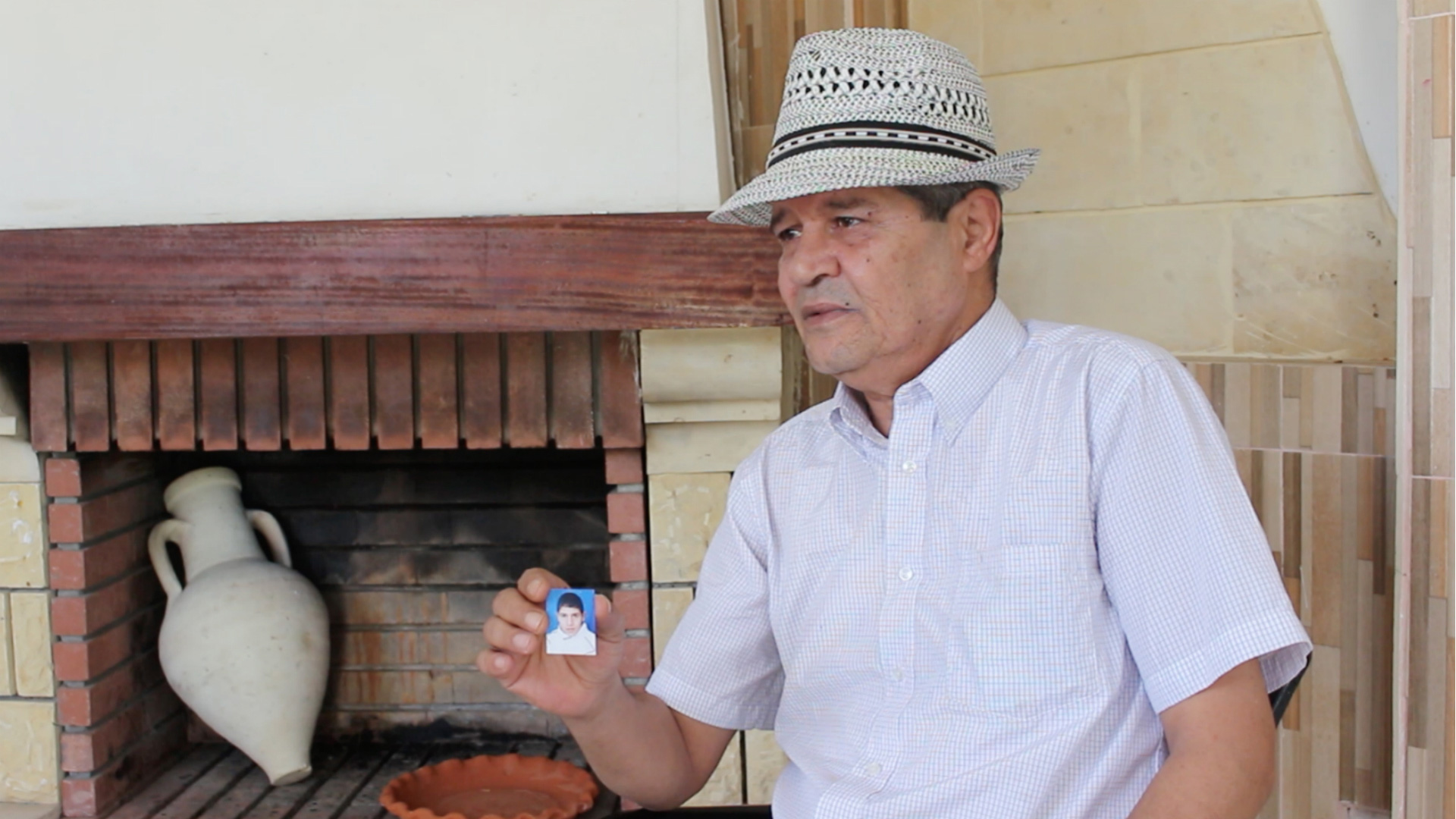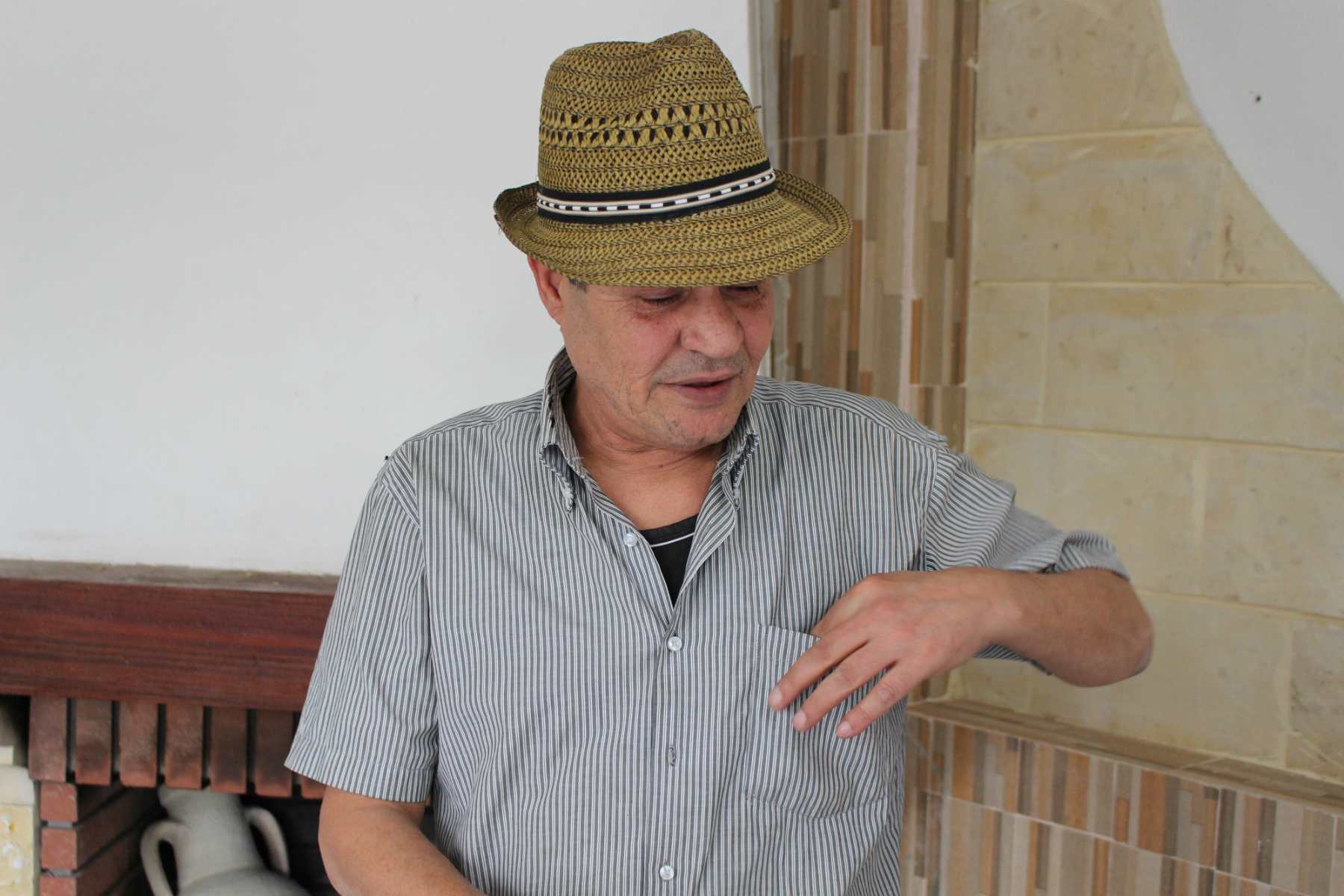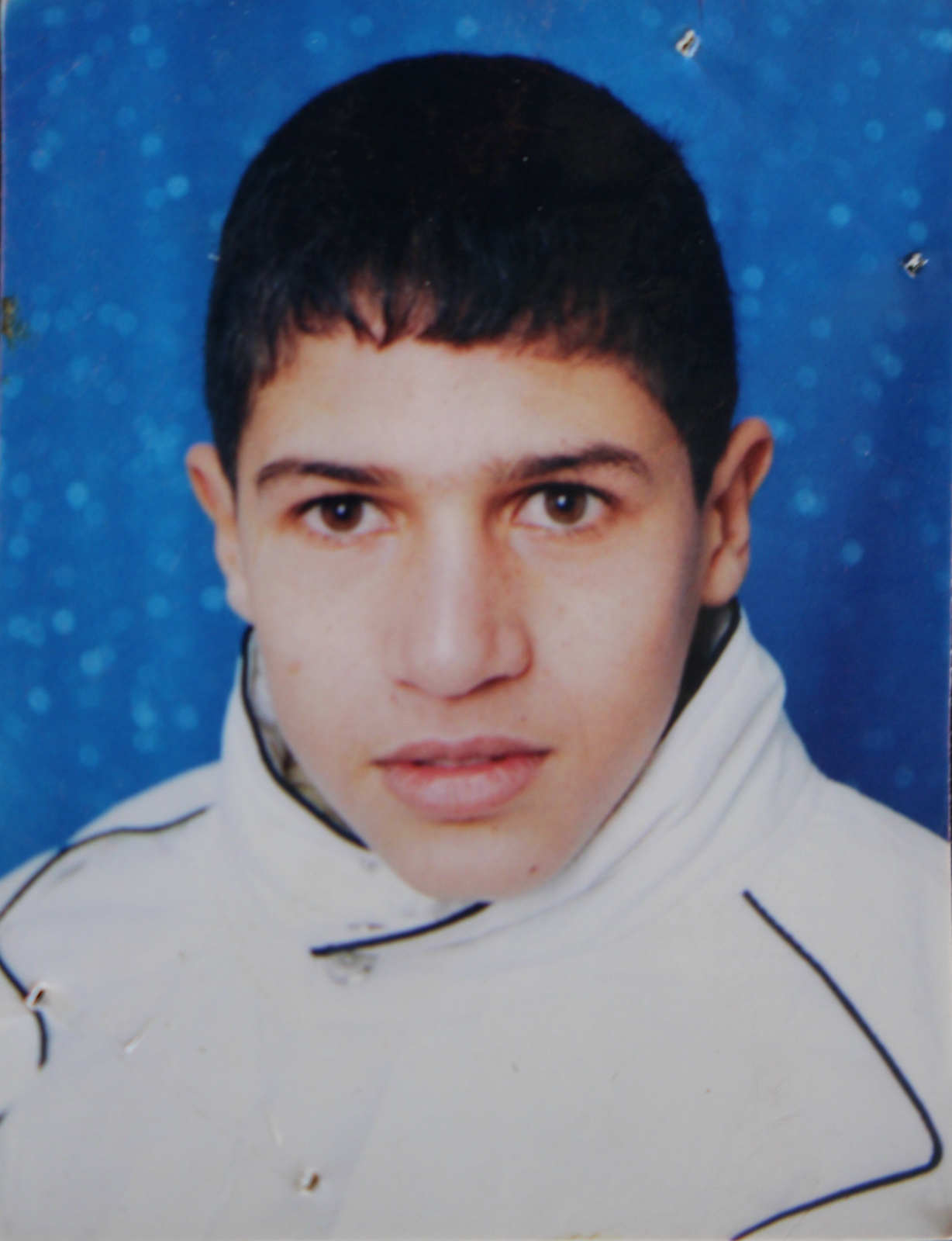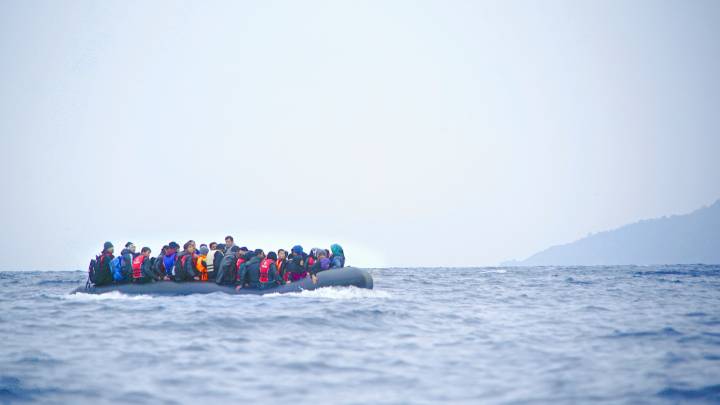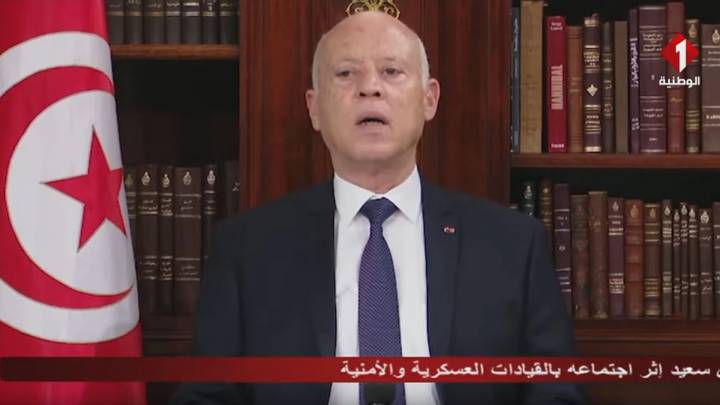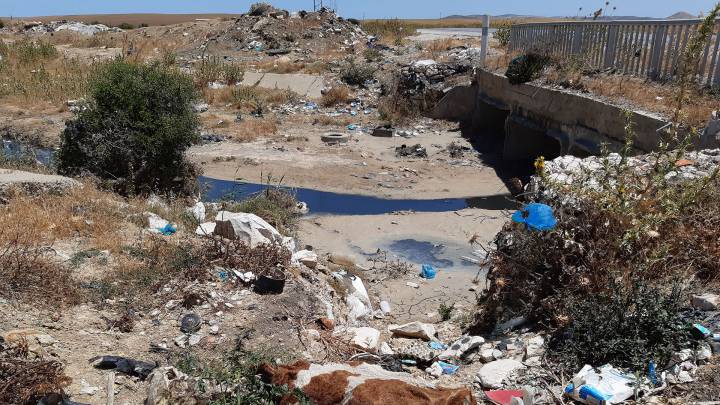A radicalised son and a heart-broken father - Farid Ben Salah Barhoumi’s story is sadly a familiar one - recruited by local terror cells and brainwashed into believing he would wage jihad.
The story begins in early 2011, in a small mosque in the Kasserine region, west-central Tunisia, where Farid Ben Salah Barhoumi was just an ordinary teenager, but who was recruited by a local terror cell. Five years' later, in an exclusive interview with zenith, his heart-broken father tells the story of his son's journey, and the failure of the authorities to act when they had an opportunity to bring him in.
After the fall of the Ben Ali regime, Tunisia witnessed a rise in Salafism, a phenomenon that barely existed prior to the country’s 2011 revolution. One group that emerged was Ansar al-Sharia (AST) in Tunisia (Supporters of Islamic Law in Tunisia), founded in April 2011 by Abu Ayadh, aka Saifallah Ben Hassine, an Islamist ex-political prisoner. The group grew quickly, establishing its own media outlet, Qairawan Media Foundation, and its own magazine, blog and social media accounts.
Islamists operated freely after the revolution
Members of AST were active in mosques across the country, especially in rural interior towns with high poverty and unemployment rates. Located 290km from the capital Tunis, and just 30km from Tunisia’s border with Algeria, the province of Kasserine was a fertile ground for such activities. Recruiters operated openly in neighbourhood mosques in many towns. In Ibn Taimiyya mosque, just a few metres from his house in his hometown Sbeitla, Farid was recruited at the age of 18.
PROFILE: Ansar al-Sharia in Tunisia (Supporters of Islamic Law in Tunisia). AST is a jihadist group founded in 2011 by Seifallah ben Hassine, aka Abu Ayadh al-Tunisi, a close associate of al-Qaeda. AST is a branch of Al-Qaeda in the Islamic Maghreb (AQIM). It promotes a radical ideology through proselytisation, community service and violence. On August 27, 2013, the Tunisian government designated AST a terrorist organisation.
“Whoever is moved by the imam’s speech will be a target for the recruiters, especially if he is at a young age,” says Salah al-Barhoumi, Farid’s father, about the selection criteria for new recruits.
Farid’s gradual radicalisation was obvious to his father, who noticed that his son became increasingly serious about religion, narrowed his social circle and began visiting the mosque more often. “He spoke about Sharia law and how heaven could be attained, and with each visit to the mosque he came back with even more radical thinking. I don’t know what they were teaching him there,” says Salah. Later, Farid joined Ansar al-Sharia and took part in conferences, proselytising campaigns and preaching tents, organised by the group around the country.
The failure of the security forces
“You are ready for jihad,” the recruiter told Farid after two years with AST. Knowing that he might never see his son again, Salah desperately tried to convince Farid to change his mind. “You are a chess piece in their hands,” he explained. “They are playing you. Leave them.”
But Farid was determined to go to Mali or Syria to fight with al-Qaeda, but the AST group decided to keep him in Tunisia, where he was sent to join Okba Ibn Nafaa, a branch of al-Qaeda in the Islamic Maghreb, active in the Kasserine mountains. There, on the Chambi mountain,he received intensive training in planting and dismantling land mines and the use of weapons.
A few days later, Farid came home from the training camp to Sbeitla, to visit his father, who promptly informed the authorities of his son’s involvement with the group.Terrified of losing him, he suggested they file a suit against his son to have him arrested, in case the police lacked evidence, or feared a revenge attack from the terrorists.
“I wish every parent was like you, we wouldn’t have to deal with such problems in the first place,” said an official to Saleh – yet no action was taken to prevent Farid from going back to the mountains, 25 days later. The name Farid Ben Salah Barhoumi appeared on the Interior Ministry’s most-wanted terrorist list shortly after that.
A period of uncertainty
Farid did not lose contact with his mother while he was in the mountains. He regularly called her, although communication with his father was limited. He called Saleh when he was most desperate and confused. The first phone call came sometime after several members of the brigade slaughtered eight Tunisian soldiers on Chambi, during the holy month of Ramadan, in the summer of 2013.
Kasserine’s geography makes it an ideal headquarters for jihadists, due to the region’s proximity to the Algerian border and its mountainous terrain, providing a perfect place for terrorist training camps. Moreover, the dire economic situation and the high unemployment and poverty rates in border regions creates fertile ground for terror cells to recruit young men for domestic and international terrorist groups. Since the revolution, Kasserine has become a hothouse of radicalised young men.
“Son, were you with them?” asked Saleh, panicking. Farid denied any involvement in the operation and now expressed regret about joining the group in the first place. To Saleh, this was an opportunity to convince him to turn himself in to the police.
“Your hands are not yet stained with blood. Son, turn yourself in and I’m sure that your sentence will be reduced,” Saleh begged his son. In January 2014 Saleh’s phone rang again. In a sad voice, Farid reported that he had been chosen to carry out a suicide mission, with an explosive belt, targeting Sbeitla’s weekly market. Previously, he had failed to carry out a plot to bomb the National Guard headquarters. He talked of his fear, his wish to be home and to have his old life back again.
“This is not the paradise I was searching for, Dad,” said Farid. His worried father told him to escape at night and surrender himself to the nearest army unit. Two weeks later, on 21 January, Farid turned himself in at the military barracks in Sbeitla, carrying his Kalashnikov, a grenade and a landmine.
Evidence of sexual assault
Once he surrendered, Farid revealed the terrorist group’s plans to target police stations and homes of security officials in Sbeitla and Kasserine. Other details he provided helped eliminate a terrorist cell active in the Rawad region, near Tunis, including a prominent leader, Kamal al-Gathgathi. Furthermore, he revealed secret sites and roads used by the terrorists in the mountains.
“Farid felt relieved after giving this information to the police, yet he was carrying a heavier weight on his shoulders,” says Saleh, looking at the ground for a moment. He continues speaking, speeding up, as if he doesn’t want to believe his own words. “He was repeatedly raped during the time he spent in the mountains.” As difficult as it was for Farid’s father to acknowledge, a forensic medical report in Tunis confirmed that Farid had indeed been sexually assaulted several times by an Algerian leader in the group, known as al-Shanguti.
During Saleh’s last visit to his son in Mornaguia prison in Tunis, Farid expressed deep regret that he had ever joined the terrorist group. Now he will live with that remorse for a long time. On October 13, 2016 Farid was sentenced to 13 years, plus five years probation. “His life will never be the one he dreamed of,” says Saleh, trying to hide his tears.
Between the bitterness of remorse, the ugliness of memory and the darkness of the future, Farid remains in his jail cell, counting the days, hoping for his sentence to be reduced in the Court of Appeal.
